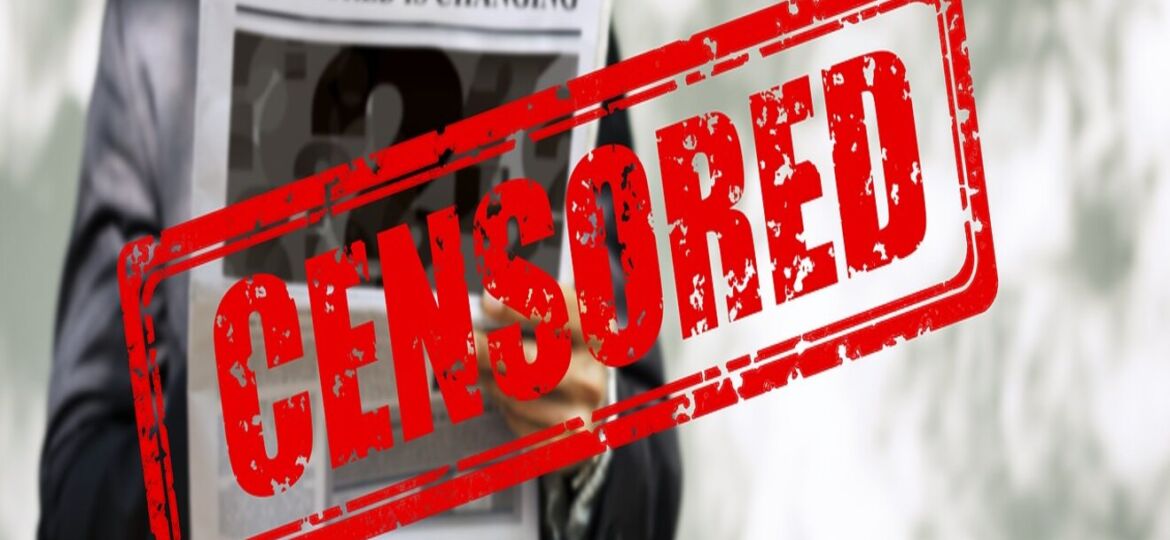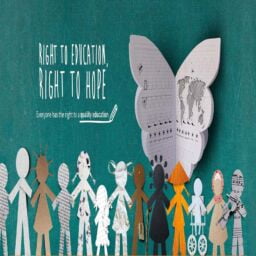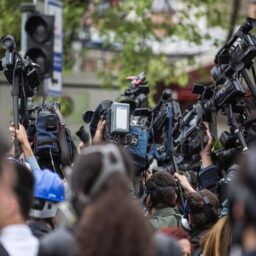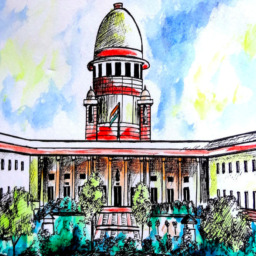
CENSORSHIP LAWS IN INDIA: BOON OR BANE?
Gandhi said, “Bura mat Suno, Bura mat Dekho, Bura mat bolo” (see no evil, hear no evil, speak no evil”), does it pertain to censor everything that may criticize the religion, politics, or socio-culture structure of the country? In recent times, various critics have interpreted the three infamous proverbial monkeys as “Kuch mat Suno, Kuch mat Dekho, Kuch mat Bolo” voicing against the government’s attempt to censor the thoughts of people on almost anything that may question the working of the government. The debate on whether censorship laws should be established in India in a more structural way has both for and against arguments. To understand censorship laws, we must discuss what is censorship and what is the current situation of it in India’s legal system.
According to Oxford Reference, Censorship is “any context in which the content of what is publically expressed, exhibited, published, broadcast, or otherwise distributed is regulated.” The definition is extended to describe the probable grounds for such regulation, it includes political, moral, social, or religious. Therefore, censorship can be summarised as an act of suppressing those thoughts that are considered obscene, politically unacceptable, or a threat to the security of the country. Extending the issue, the term obscene has been described in the Indian Penal Code, 1860 under section 292 wherein anything that “deprave or corrupt a person” who is likely to have read, seen, or heard the matter contained in it is categorized as obscene.
In India, the most prominent objects of censorship have been books, cinema, and media. There are innumerable instances when books, films, documentaries, social media posts, advertisements, and articles have been suppressed in the name of censorship. The most recent instance of censorship is the bashing of Tanishq’s advertisement on interfaith marriages. The leading jewellery brand was accused of promoting love jihad and faking secularism. The Titan Group’s Tanishq brand was miserably lashed down by people on the social media platform Twitter, forcing the brand to take down the advertisement. Like two sides of a coin, this whole instance can be seen in two ways: first, on account of censorship, the freedom of expression is compromised, and second, if there were structured censorship laws in India the brand might not have to undergo the whole bashing out.
The argument for censorship is that it violates the fundamental right of freedom of speech and expression [Article 19(1)], enshrined in part III of the Constitution of India. However, it is interesting to note that the very same article provides arguments against the censorship laws. The right to freedom of speech and expression is given to all citizens but with the exception that it should not affect “the interests of the sovereignty and integrity of India, the security of the State, friendly relations with foreign States, public order, decency or morality or in relation to contempt of court, defamation or incitement to an offence”. These exceptions are described in clause 2 of Article 19. Does this highlight the need for having censorship laws in India as it is essential to have clarity about what is decent or moral? It is important to question whether the freedom of expression an illusion? As mentioned earlier, books, articles, cinema, art are censored the most, almost as if censorship is used as a tool not only to suppress but also to smash the stream of thought that condemns religion, social-culture or government.
Most recently, the show makers of the web series, Tandav, were smacked for hurting religious sentiments due to a particular scene in the show. Many FIRs were filed in more than six cities against the show makers and actors. The social media platform, Twitter, was trending with #bantandav the very next of its release. With the growing outrage and protests by the Hindu community, the makers bow down and decided to censor the scenes which were allegedly hurting the religious sentiments. The whole incident questions the autonomy of expressing and showcasing the social-political issues of the society. Various other web shows have been knocked on similar grounds including shows like Ashram and A Suitable Boy. The lack of independence in freely expressing social, political, or religious issues extends the need for having structured censorship laws in India.
The overdose of anything always leads to crooked results. A balance is perhaps the key in the debate of whether censorship laws are a boon or bane. There should be laws in regard to censorship that ensure the freedom of speech and expression and at the same time protects the citizens from the “obscene” matters as stated in IPC. The censorship should apply to those issues which can lead to political/religious riots, internal disturbance, or war-like situations. The expression of thoughts or opinions should not be like fighting a war wherein the person has to put in all his efforts just to access a fundamental right. The former Chief Justice of India, Justice P.N Bhagwati once stated that “the law cannot afford to remain static”. The law cannot remain static, there is a need to change the legal environment in regard to censorship laws and how the term is misused at various platforms to ban pieces of literature or art or most significantly media to serve the purpose of government. There is a need for structured censorship laws in India so that the artists/filmmakers/journalists/writers etc. can easily express and use their freedom of speech and expression.
The famous saying, Justice delayed is justice denied stands correct in this regard. If there would a delay in the creation of structured censorship laws in India while ensuring freedom of speech and expression it would be a case of justice denied. Whether the censorship laws in India are a boon or bane is a matter that cannot be debated in black and white, there is a lot of grey in this matter which can also be marked as the balance. A balance is required wherein the rights of citizens should be protected while protecting them from obscene matters.
Author(s) Name: Pridhi Chopra (Amity Law School, Noida)
Reference(s):
- https://twitter.com/kunalkamra88/status/996973256996474880?lang=en
- https://www.oxfordreference.com/view/10.1093/oi/authority.20110803095558166#:~:text=1.,circulation%20of%20information%20is%20controlled.
- https://www.hindustantimes.com/entertainment/bollywood/tandav-bows-down-is-censorship-the-way-forward-for-ott-101611211586921.html
















